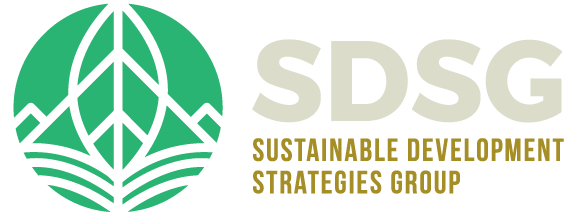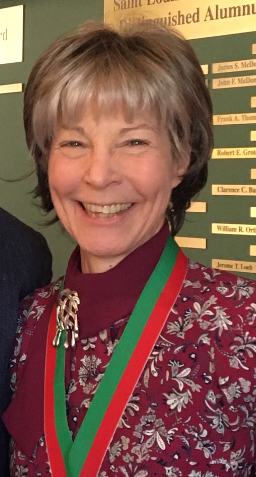International Advisory Board
Experts on SDSG’s International Advisory Board help our organization stay on the cutting edge of current and emerging issues related to sustainable development of renewable energy and natural resources. International Advisory Board members are selected based on their subject matter expertise, knowledge of one or more particular geographical areas, and reputation in the field.
Charles Afeku
Charles Afeku was called to the Ghana Bar in 2004 and graduated from the University of Denver Sturm College of Law in 2010 with a Master of Laws degree in Natural Resources and Environmental Law and Policy, and with specializations in Mineral Law and Policy, Renewable Energy Law, and Sustainable Development. He worked in various positions in the Ghana Minerals Commission between 2004 and 2019 where he was actively involved in the development of his country’s mineral polices, laws, and regulations, negotiation of several mining agreements, as well as arbitration of international mining disputes. While at the Commission or on sabbatical at various times, he has been involved in significant international projects, including working with Sustainable Development Strategies Group (SDSG) on the International Bar Association Model Mining Development Agreement; contributing through Ghana’s team towards the Africa Mining Vision and the International Study Group Report on Africa’s Minerals Regimes; and contributing to the World Bank and African Legal Support Facility (ALSF) African Mining Legislation Atlas Guiding Template. He has also been involved in consulting projects advising the Governments of Swaziland, Rwanda, and the East African Community on extractives issues, including reviewing and drafting extractives policies, laws, and agreements. Currently, as Advisor to the Director & CEO of ALSF, Charles contributes to the sustainable development of Africa through ALSF’s legal and technical advisory and capacity building support to African governments, undertaking or concluding natural resources and extractives, power, infrastructure, and sovereign debt transactions. Charles is a former SDSG Law Fellow who considers his time in Gunnison with SDSG, especially hiking some of the terrific Colorado trails and “fourteeners” (14,000 foot peaks), among his most memorable.
Maria Laura Barreto
Maria Laura Barreto has been active in the field of environmental law and extractive industries since 1982. Her career has involved three major phases of activities based in Mozambique, Brazil, and now Canada. In Mozambique she worked primarily as a legal advisor to the Minister of Mineral Resources. In Brazil, over 17 years, she was a researcher and professor; served as a senior legal and policy advisor for the Secretary of Mining and Metallurgy, particularly on the topics of sustainable development and international environmental negotiations; and worked for 15 years in the Center of Mineral Technology, where she focused primarily on the concepts of sustainable development for the mining sector and formalization and legalization of artisanal and small-scale mining (ASM). Arriving in Canada in 2002, Ms. Barreto co-founded a consulting company, Materials Efficiency Research Group (MERG), which has been actively engaged with a range of governments, companies, and nongovernmental organizations within the fields of environmental and mining law reform, sustainable development in the mining sector, and ASM. During her first five years in Canada she worked as a visiting professor at universities in British Columbia, Spain, and the United States before fully dedicating herself to consulting work. Since 2007, Ms. Barreto has served on the Board of the Alliance for Responsible Mining (ARM), an organization that it is leading a series of internationally recognized pioneer projects on ASM. In March 2010, Ms. Barreto was elected Chair of the Board of ARM.
Flaviano Bianchini
Flaviano Bianchini founded Source International in 2009. Mr. Bianchini is an environmentalist and naturalist. As an Ashoka Fellow he specialized in Management and Valorization of Natural Resources at the University of Pisa. He also holds a Master's Degree in Human Rights and Conflict Management from the Sant'Anna School of Higher Studies. His work is now focused on violations of human rights and health impacts of extractive industries, especially in Latin America. His studies on the impact of mining on the environment and health led to the modification of the mining law in Honduras, the adoption of precautionary measures by the Inter-American Commission on Human Rights in Guatemala, and the approval of laws on the welfare of the city of Cerro de Pasco in Peru. Between 2007 and 2009 he conducted an awareness campaign on the impact of mining activity in Latin America in collaboration with Amnesty International.
Dr. Byambajav Dalaibuyan
Dr. Byambajav Dalaibuyan is Director of Mongolian Institute for Innovative Policies. His research interests address governance and sustainability challenges in emerging economies, with a focus on the resources sector; good governance in the public and private sectors; business and community relations; and corporate social responsibility. Dr. Dalaibuyan holds a PhD in Sociology from the Hokkaido University. He has held research and teaching roles with the University of Queensland, Hokkaido University, Tohoku University, and Mongolian State University of Education. He has delivered consultancy and research services for the Mongolian National Human Rights Commission, Mineral Resources and Petroleum Authority of Mongolia, United Nations Development Programme (UNDP), United Nations Educational, Scientific and Cultural Organization (UNESCO), International Finance Corporation (IFC), International Mining for Development Centre (IM4DC), Natural Resource Governance Institute (NRGI), Canadian International Resources and Development Initiative (CIRDI), and The Bertelsmann Foundation.
K.K. DuVivier
K.K. DuVivier taught full-time for ten years at University of Colorado Law School before joining the University of Denver Sturm College of Law faculty in 2000, where she is currently a tenured full Professor of Law. Professor DuVivier’s research and teaching focuses are energy and renewable energy law, with a special emphasis on wind, solar, energy efficiency, and distributed generation. In addition to many articles, K.K. has written two books: Energy Law Basics (2017) and The Renewable Energy Reader (2011) and two book chapters: Legal Pathways to Deep Decarbonization in the United States (Chapter 19 “Distributed Renewable Energy”)(2019) and The Law Distributed Generation in the United States (Chapter 13 “Conclusions [including Microgrids]”). Professor DuVivier worked as a field geologist before law school, and after earning her J.D., she practiced for eight years, first in natural resources law at the law firms of Sherman & Howard and Arnold & Porter, then as an Assistant City Attorney in the land use and revenue section for the City and County of Denver. Professor DuVivier has been a member of the American Law Institute since 2006. She received the Robert B. Yegge Excellence in Teaching Award from DU in 2018 and the Clyde O. Martz Award from the Rocky Mountain Mineral Law Foundation in 2019. In 2008, Professor DuVivier and her former partner, Lance Wright, designed and built a net-positive energy home following German Passive House principles. This house was frequently featured in sustainability tours and won the Colorado Renewable Energy Society’s Renewable Energy and Sustainable Design in Buildings Award for the Residential-New Construction category in 2012.
Ved P. Nanda
Ved P. Nanda is a Distinguished University Professor and Thompson G. Marsh Professor of Law at the University of Denver, where he founded the International Legal Studies Program in 1972 and now directs the Ved Nanda Center for International and Comparative Law. The Center was established in his honor by alumni and friends, who have also endowed a professorship in his name. He has received Honorary Doctorates of Law from Soka University, Tokyo, Japan, and Bundelkhand University, Jhansi, India, and has taught and lectured at several universities in the U.S. and abroad. He is also an Honorary Professor of Law at the University of Delhi, India.
Maria de los Angeles Pérez
Maria de los Angeles Pérez is a Chilean lawyer with a law degree from the Universidad de Chile and Master of Laws degree from University of California Los Angeles Law School. She is also a former Fulbright Scholar. Her work is focused on the mining and sustainability sectors, in Chile and other jurisdictions. She previously served as Project Director in the International Council for Mining and Metals (ICMM), based in London, where she oversaw the generation of ICMM’s Sustainable Development Framework. In Chile, she was appointed Sustainability Director for Corporación Nacional del Cobre de Chile (Codelco), a state-owned company and the world’s largest copper producer. In this position she responded to sustainability challenges and risks of the company. She was eventually appointed to the position of International Business Lawyer for the company. Ms. Pérez has also worked as a consultant with Sustainable Development Strategies Group (SDSG), contributing to projects involving several aspects of mining and minerals legislation and related environmental laws in Mozambique, Honduras, and Argentina. She has also worked on projects in China, Peru, Bolivia, and Mexico. Recently Ms. Pérez provided her legal opinion regarding judicial actions before the Supreme Court of Chile brought by affected communities against mining projects. Ms. Perez provides legal advice to clients in Chile and Argentina. She is currently a partner at the law firm Vargas y Asociados based in Santiago, Chile.
Perrine Toledano
Perrine Toledano is the Head of Extractive Industries at Columbia Center on Sustainable Investment (CCSI). Her work is focused on extractive industries and sustainable development, a focus she co-developed at CCSI in 2010. She leads research, training and advisory projects on fiscal regimes; financial modeling; leveraging extractive industry investments in rail, port, telecommunications, water and energy infrastructure for broader development needs; local content; revenue management; contract transparency; and optimal legal provisions for development benefits. To this traditional portfolio, she has recently added research and advisory work on the impact of the energy transition and the Sustainable Development Goals on extractive industry investments and resource rich countries. She has led projects in DRC, Liberia, Paraguay, Mozambique, Sierra Leone, Tanzania and Timor-Leste, and assisted many more government teams remotely. She is a research advisor at the The Jerusalem Institute for Policy Research, Milken Innovation Center. She also jointly developed curricula for a masters and an executive course on extractives and sustainable development taught at Columbia University. She is the co-editor of two volumes published by Columbia University Press: Rethinking Investment Incentives: Trends and Policy Options and The New Frontiers of Sovereign Investment. Prior to joining CCSI, she worked as a consultant for several institutions, including the World Bank, Department for International Development (DFID), and Revenue Watch Institute, and private sector companies, including Natixis Corporate Investment Bank and Ernst and Young. Her experience includes auditing, financial analysis, IT for capital markets, public policy evaluation, and cross-border project management. She has a Masters of Business Administration from ESSEC in Paris, France, and a Masters of Public Administration from Columbia University.
Alan M. Young
Alan M. Young is Director of the Materials Efficiency Research Group (MERG). Since 1990 Alan has worked as a facilitator and strategist for a wide range of conservation groups, Indigenous organizations, communities, progressive companies, and governments across Canada and internationally. His primary focus has been on designing and helping to implement social and environmental sustainability and leadership strategies. His work has included projects throughout North America, Latin America, Europe and Nordic nations. Mr. Young has expertise in cross-sector collaboration design and facilitation, non-profit organizational resilience, ethical practices certification programs in the forestry and mining sectors, large-scale conservation strategy development, as well as various legislative reform processes in the extractive sectors. His passion is for accelerating transformative strategies towards a prosperous, equitable, zero waste, low carbon future. Mr. Young has served on a variety of nonprofit boards and currently is Chairperson of the International Institute for Sustainable Development (IISD), Chair of the Centre for Science in Public Participation (CSP2), Board member of the Initiative for Responsible Mining Assurance (IRMA), member of Council of Canadian Academy's Expert Panel on Circular Economy in Canada, and past Chair of the Forest Stewardship Council of Canada.











